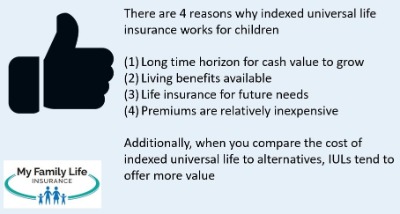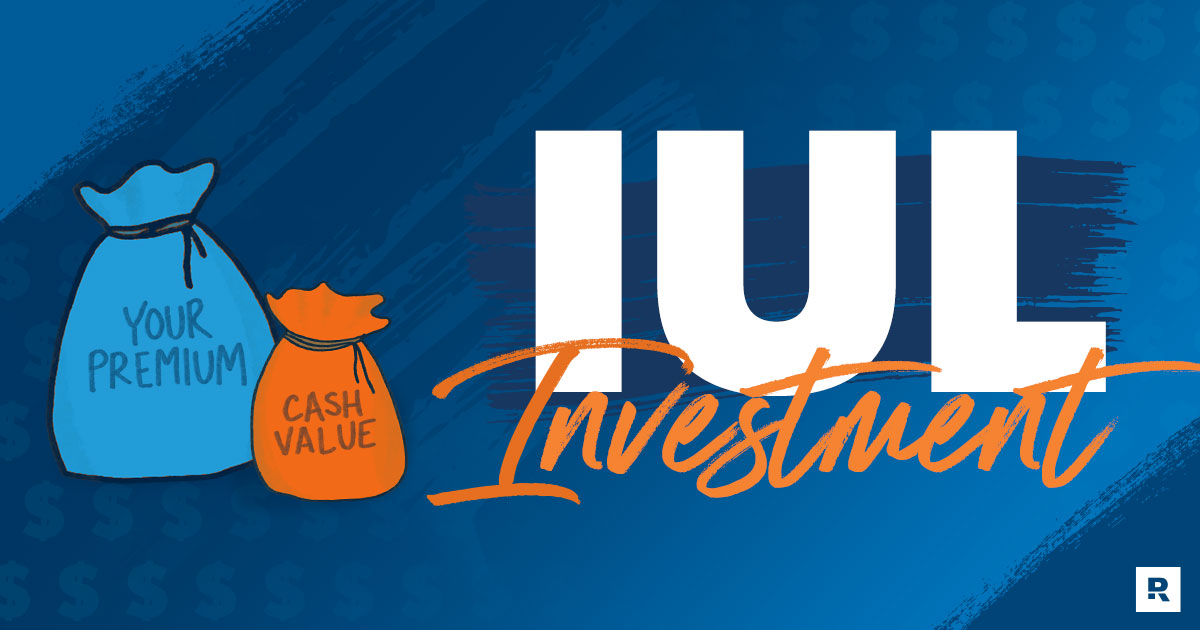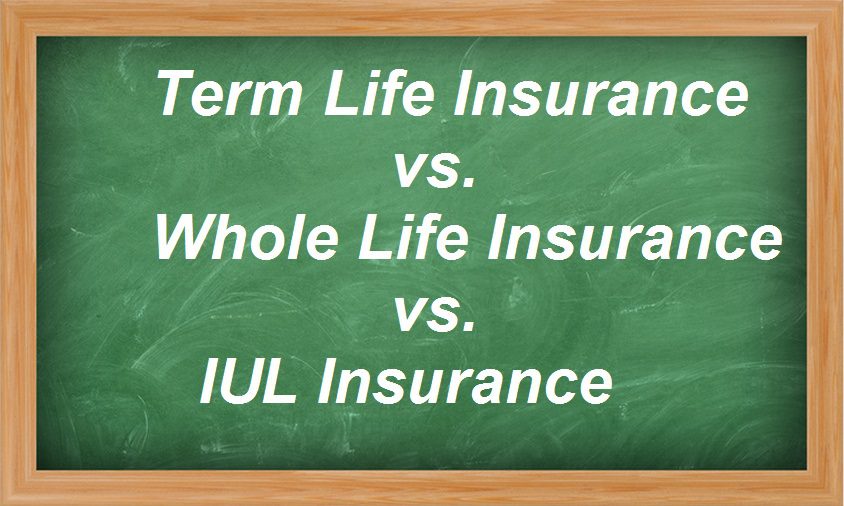All Categories
Featured
Table of Contents
1), typically in an effort to defeat their category averages. This is a straw man debate, and one IUL individuals love to make. Do they contrast the IUL to something like the Lead Overall Securities Market Fund Admiral Shares with no tons, an expense proportion (EMERGENCY ROOM) of 5 basis factors, a turnover proportion of 4.3%, and an exceptional tax-efficient document of circulations? No, they compare it to some horrible proactively handled fund with an 8% load, a 2% ER, an 80% turnover proportion, and a dreadful document of temporary funding gain circulations.
Common funds usually make annual taxable circulations to fund proprietors, even when the value of their fund has decreased in worth. Common funds not just call for earnings coverage (and the resulting annual taxation) when the common fund is going up in worth, yet can also enforce earnings tax obligations in a year when the fund has actually dropped in value.
That's not how shared funds function. You can tax-manage the fund, collecting losses and gains in order to decrease taxed distributions to the capitalists, but that isn't in some way going to transform the reported return of the fund. Just Bernie Madoff kinds can do that. IULs prevent myriad tax traps. The possession of shared funds might call for the common fund proprietor to pay estimated tax obligations.

IULs are easy to place to ensure that, at the owner's fatality, the beneficiary is exempt to either revenue or inheritance tax. The very same tax obligation reduction strategies do not work virtually too with common funds. There are various, frequently expensive, tax traps connected with the timed acquiring and selling of shared fund shares, catches that do not apply to indexed life Insurance policy.
Possibilities aren't really high that you're mosting likely to undergo the AMT as a result of your mutual fund circulations if you aren't without them. The remainder of this one is half-truths at finest. As an example, while it is true that there is no earnings tax obligation because of your successors when they inherit the proceeds of your IUL plan, it is likewise true that there is no revenue tax obligation as a result of your heirs when they inherit a common fund in a taxable account from you.
Nationwide Yourlife Indexed Ul Accumulator
There are far better methods to avoid estate tax problems than getting investments with low returns. Shared funds might trigger income taxation of Social Security benefits.

The growth within the IUL is tax-deferred and might be taken as tax obligation complimentary income by means of lendings. The policy proprietor (vs. the common fund manager) is in control of his/her reportable revenue, therefore enabling them to minimize or perhaps remove the taxation of their Social Protection benefits. This is excellent.
Right here's another very little concern. It's true if you get a common fund for state $10 per share simply before the distribution day, and it disperses a $0.50 distribution, you are then going to owe taxes (possibly 7-10 cents per share) despite the reality that you have not yet had any gains.
In the end, it's truly regarding the after-tax return, not how much you pay in taxes. You are mosting likely to pay more in tax obligations by utilizing a taxable account than if you purchase life insurance policy. But you're also possibly mosting likely to have even more money after paying those tax obligations. The record-keeping requirements for owning mutual funds are substantially much more complicated.
With an IUL, one's records are kept by the insurance firm, duplicates of yearly declarations are mailed to the proprietor, and distributions (if any) are amounted to and reported at year end. This one is also kind of silly. Obviously you ought to maintain your tax records in case of an audit.
Survivorship Life Insurance Quote
Rarely a factor to acquire life insurance. Mutual funds are typically component of a decedent's probated estate.
In addition, they go through the delays and expenses of probate. The earnings of the IUL policy, on the various other hand, is always a non-probate distribution that passes beyond probate directly to one's named beneficiaries, and is consequently exempt to one's posthumous creditors, unwanted public disclosure, or similar hold-ups and prices.
We covered this under # 7, yet simply to evaluate, if you have a taxable common fund account, you need to place it in a revocable trust fund (and even simpler, utilize the Transfer on Fatality designation) in order to prevent probate. Medicaid incompetency and lifetime earnings. An IUL can supply their proprietors with a stream of income for their entire lifetime, no matter for how long they live.

This is helpful when organizing one's events, and transforming properties to earnings before an assisted living facility arrest. Shared funds can not be converted in a comparable manner, and are virtually constantly considered countable Medicaid possessions. This is one more silly one supporting that bad people (you recognize, the ones that need Medicaid, a federal government program for the bad, to spend for their assisted living home) ought to utilize IUL instead of shared funds.
Universal Life Insurance Policy Quotes
And life insurance coverage looks dreadful when compared relatively versus a retired life account. Second, people that have cash to purchase IUL over and past their retired life accounts are mosting likely to need to be horrible at handling cash in order to ever receive Medicaid to spend for their nursing home costs.
Persistent and incurable ailment rider. All plans will certainly permit a proprietor's very easy access to money from their plan, usually waiving any type of surrender fines when such individuals experience a serious disease, need at-home treatment, or become constrained to a retirement home. Shared funds do not give a similar waiver when contingent deferred sales fees still put on a shared fund account whose proprietor requires to sell some shares to fund the expenses of such a remain.
History Of Universal Life Insurance
You obtain to pay even more for that benefit (rider) with an insurance policy. What a large amount! Indexed universal life insurance policy supplies survivor benefit to the beneficiaries of the IUL proprietors, and neither the owner neither the beneficiary can ever lose cash as a result of a down market. Common funds provide no such warranties or survivor benefit of any kind of kind.
Now, ask yourself, do you in fact require or desire a survivor benefit? I definitely do not require one after I reach economic freedom. Do I desire one? I intend if it were inexpensive sufficient. Certainly, it isn't low-cost. On average, a buyer of life insurance pays for real price of the life insurance policy benefit, plus the costs of the policy, plus the revenues of the insurance provider.
Nationwide Iul Review
I'm not totally sure why Mr. Morais tossed in the entire "you can't lose money" once again below as it was covered rather well in # 1. He simply wished to duplicate the very best selling factor for these things I expect. Once more, you do not shed nominal dollars, but you can lose real bucks, in addition to face significant chance price due to reduced returns.

An indexed global life insurance coverage plan owner might trade their plan for a totally different plan without causing revenue tax obligations. A mutual fund owner can not relocate funds from one shared fund firm to an additional without offering his shares at the former (thus setting off a taxed occasion), and repurchasing brand-new shares at the latter, typically based on sales fees at both.
While it holds true that you can trade one insurance coverage plan for an additional, the reason that people do this is that the first one is such a dreadful policy that even after getting a brand-new one and undergoing the early, negative return years, you'll still come out in advance. If they were marketed the best plan the very first time, they should not have any type of wish to ever before trade it and go with the early, negative return years again.
Latest Posts
Net Payment Cost Index Life Insurance
Adjustable Life Insurance Vs Universal Life Insurance
Difference Between Universal Life Insurance And Whole Life Insurance